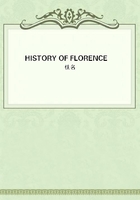
第110章
The Florentines, being informed of these transactions, became alarmed, perceiving the war threatening themselves, and the little progress made in Lombardy. Nor did the suspicion entertained by them of the troops of the church give them less uneasiness; not that the pope was their enemy, but because they saw those forces more under the sway of the patriarch, who was their greatest foe. Giovanni Vitelleschi of Corneto was at first apostolic notary, then bishop of Recanati, and afterward patriarch of Alexandria; but at last, becoming a cardinal, he was called Cardinal of Florence. He was bold and cunning; and, having obtained great influence, was appointed to command all the forces of the church, and conduct all the enterprises of the pontiff, whether in Tuscany, Romagna, the kingdom of Naples, or in Rome. Hence he acquired so much power over the pontiff, and the papal troops, that the former was afraid of commanding him, and the latter obeyed no one else. The cardinal's presence at Rome, when the report came of Niccolo's design to march into Tuscany, redoubled the fear of the Florentines; for, since Rinaldo was expelled, he had become an enemy of the republic, from finding that the arrangements made by his means were not only disregarded, but converted to Rinaldo's prejudice, and caused the laying down of arms, which had given his enemies an opportunity of banishing him. In consequence of this, the government thought it would be advisable to restore and indemnify Rinaldo, in case Niccolo came into Tuscany and were joined by him. Their apprehensions were increased by their being unable to account for Niccolo's departure from Lombardy, and his leaving one enterprise almost completed, to undertake another so entirely doubtful; which they could not reconcile with their ideas of consistency, except by supposing some new design had been adopted, or some hidden treachery intended. They communicated their fears to the pope, who was now sensible of his error in having endowed the cardinal with too much authority.
CHAPTER VI
The pope imprisons the cardinal and assists the Florentines--Difference of opinion between the count and the Venetians respecting the management of the war. The Florentines reconcile them--The count wishes to go into Tuscany to oppose Piccinino, but is prevented by the Venetians--Niccolo Piccinino in Tuscany--He takes Marradi, and plunders the neighborhood of Florence--Description of Marradi--Cowardice of Bartolomeo Orlandini--Brave resistance of Castel San Niccolo--San Niccolo surrenders--Piccinino attempts to take Cortona, but fails.
While the Florentines were thus anxious, fortune disclosed the means of securing themselves against the patriarch's malevolence. The republic everywhere exercised the very closest espionage over epistolary communication, in order to discover if any persons were plotting against the state. It happened that letters were intercepted at Monte Pulciano, which had been written by the patriarch to Niccolo without the pope's knowledge; and although they were written in an unusual character, and the sense so involved that no distinct idea could be extracted, the obscurity itself, and the whole aspect of the matter so alarmed the pontiff, that he resolved to seize the person of the cardinal, a duty he committed to Antonio Rido, of Padua, who had the command of the castle of St. Angelo, and who, after receiving his instructions, soon found an opportunity of carrying them into effect.
The patriarch, having determined to go into Tuscany, prepared to leave Rome on the following day, and ordered the castellan to be upon the drawbridge of the fortress in the morning, for he wished to speak with him as he passed. Antonio perceived this to be the favorable moment, informed his people what they were to do, and awaited the arrival of the patriarch upon the bridge, which adjoined the building, and might for the purpose of security be raised or lowered as occasion required.
The appointed time found him punctual; and Antonio, having drawn him, as if for the convenience of conversation, on to the bridge, gave a signal to his men, who immediately raised it, and in a moment the cardinal, from being a commander of armies, found himself a prisoner of the castellan. The patriarch's followers at first began to use threats, but being informed of the pope's directions they were appeased. The castellan comforting him with kind words, he replied, that "the great do not make each other prisoners to let them go again;and that those whom it is proper to take, it is not well to set free."He shortly afterward died in prison. The pope appointed Lodovico, patriarch of Aquileia, to command his troops; and, though previously unwilling to interfere in the wars of the league and the duke, he was now content to take part in them, and engaged to furnish four thousand horse and two thousand foot for the defense of Tuscany.